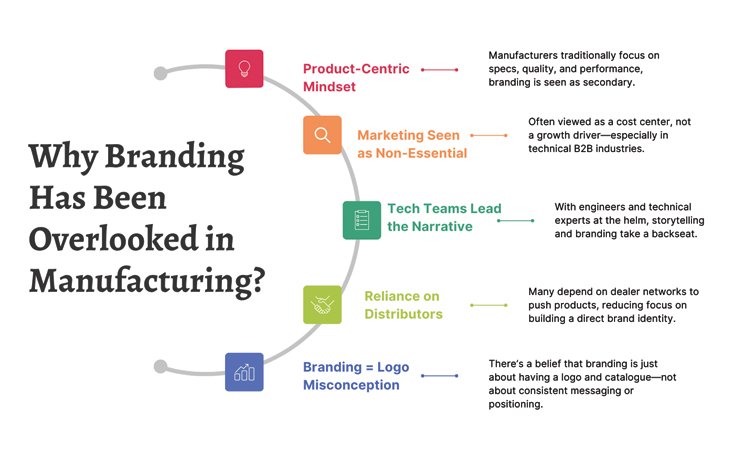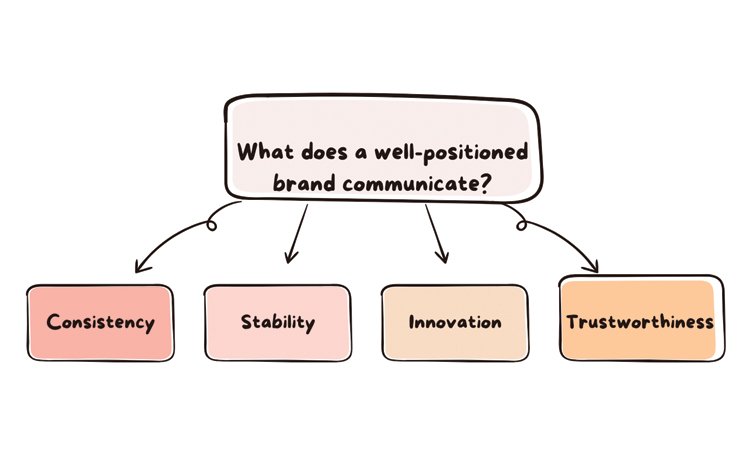Jhumpa Mukherjee is an IIM-certified Marketing Consultant with a strong track record in strategic marketing, branding, and corporate communications. With hands-on experience across diverse industries, she specialises in crafting impactful marketing strategies that drive brand growth and market visibility. Jhumpa works closely with organisations to build compelling brand narratives and enhance digital presence, helping them achieve measurable business outcomes in both domestic and international markets.
By Jhumpa Mukherjee – Marketing Consultant
When we think of branding, the mind often jumps to glossy FMCG campaigns, trendy fashion labels, or catchy jingles on television. Rarely do we associate branding with CNC machines, metrology equipment, or precision cutting tools. But here’s the reality—branding in the manufacturing sector isn’t just relevant; it’s essential.
Whether you’re a machine tool manufacturer, an automation solution provider, or a player in the lubricant and metal forming industry, your brand is your identity in a crowded and highly competitive marketplace. It’s the silent salesperson that works even when you’re not in the room.

Why Branding Has Been Overlooked in Manufacturing?
Traditionally, the manufacturing sector has focused heavily on product specs, certifications, and performance—rightfully so. But in this focus on the technical, the emotional and strategic side of branding has often taken a back seat. As a result, you will see great products with limited visibility and inconsistent customer perception, especially in export markets.
Let’s face it—being “technically sound” is no longer enough. The global buyer expects more. They want to trust you, relate to your story, and recognize your brand among dozens of options.
A strong brand gives you more than recall—it gives you credibility. Let’s understand this with an example – A European buyer is comparing two suppliers from India. Both offer similar quality, certifications, and pricing. One has a professionally designed website, consistent branding, and strong content across social media channels and industrial portals. The other has outdated brochures and a generic online presence.
Who do you think this buyer would consider?

Branding in B2B
B2B branding isn’t about fluff or flashy ads. It’s about clarity in messaging, consistency across touchpoints, and storytelling rooted in real-world impact.
These are things you can’t always show in a technical datasheet—but your brand can speak volumes when done right.
A strong brand helps your sales team shorten the sales cycle, build trust faster, and pitch to international clients with confidence. Branding also plays a crucial role in talent acquisition, investor interest, and joint venture opportunities.
If you take the same pride in crafting your brand as you do in building your machines, you’ll create something enduring.
The machine tool industry in India is evolving fast. The ones who stand out won’t just be the best manufacturers—they’ll be the best storytellers.


